
 Flash News
Flash News
Accused of murder due to blood feud, 48-year-old arrested in England
SPAK conducts searches at Ergys Agas' businesses and residences, seizes two vehicles
Members of criminal organizations! 3 Albanians extradited from Dubai today
Berisha warns of new facts about the electoral farce: Don't forget that the laptop hasn't started talking yet
Berisha to gather political leaders tomorrow
EBRD leaves the forecast for Albania's GDP unchanged: The economy will grow 2.5% this year

Albania's economy will grow by 2.5% this year according to the fall projections of the European Bank for Reconstruction and Development (EBRD), which left the forecast unchanged, the same as in the spring 2023 report.
Our country's economy grew by 2.7% in the first quarter of 2023, driven by weaker demand, although inflation was falling. Exports of goods decreased yesterday, due to the decrease in external demand and the strong appreciation of the lek.
The value of the Lek was 12% higher in July 2023 than a year earlier, reaching the highest level on record, supported by the higher number of tourists, as well as continued inflows of remittances and direct investments.
The EBRD analyzed that the appreciation of the currency offset part of the inflationary shock, which enabled an adequate monetary policy with a rate of 3% until the end of August 2023.
The EBRD predicts that economic growth is expected to continue at an average pace of 2.5% in 2023, given the weaknesses and prospects of Albania's main trading partner, Italy, and still high food inflation, which is eroding disposable income.
On the other hand, the exceptionally strong performance of the tourism sector, where the number of visitors grew by 30% year-on-year in the first seven months of 2023, is expected to support growth in both the short and medium term.
In line with the projected global recovery, economic growth is forecast to return closer to its potential, reaching 3.3% in 2024.
Western Balkan economies faced weak demand in trade with European partners, but this was partially offset by the strong performance of the tourism sector in service-based economies such as Albania, Montenegro and Kosovo.
GDP growth is expected to slow further this year, as the main partners in the Eurozone have slow growth rates (with a recession forecast in Germany).
On the other hand, inflation, while slowing down, continues to be a tax on household consumption.
Economies in the Balkans are increasingly turning to the external market for debt financing, with Serbia, North Macedonia and Albania issuing Eurobonds in the first half of 2023, and Kosovo, North Macedonia and Serbia engaged in debt financing programmes. continuous with the International Monetary Fund./Monitor
Latest news

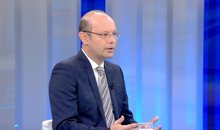
Vote recount in Tirana, Kaso: We did not have the 14th mandate as our objective
2025-06-19 22:44:53




Noka: Policemen were running from morning to night for SP votes
2025-06-19 21:31:03
The three zodiac signs that will be disappointed in love this month
2025-06-19 21:18:48
Accused of murder due to blood feud, 48-year-old arrested in England
2025-06-19 21:06:57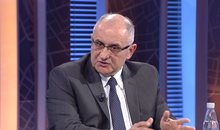
Vasili releases video: Tirana-Kashar segment full of gravel, no workers around!
2025-06-19 21:00:48

Tirana without a coach, four names considered for the white-and-blue bench
2025-06-19 20:21:12

Rinderpest/ A new outbreak appears in Shkodra, 200 sheep affected
2025-06-19 20:01:50

Scientists raise the alarm: Earth risks exceeding the 1.5°C warming limit!
2025-06-19 19:37:44

"Fiscal Peace" without consultation with the EU, Brussels concerned
2025-06-19 19:05:23
Trump signs executive order extending TikTok ban in US for another three months
2025-06-19 19:03:35

A special Task Force on immigration is established in cooperation with Italy
2025-06-19 18:23:58
Drug trafficking gang busted in Italy, 25 people arrested, including Albanians
2025-06-19 18:18:33
AMF denounces a suspicious cryptocurrency investment platform
2025-06-19 18:06:07


Technology as a tool of war between Israel and Iran
2025-06-19 17:27:54




EU divided over Israel's right to bomb Iran
2025-06-19 16:10:42

Analysis/ How is Russia spreading propaganda in the Albanian language?
2025-06-19 15:49:18
Session in the Criminal Court, MP Qani Xhafa is fined
2025-06-19 15:33:30
Members of criminal organizations! 3 Albanians extradited from Dubai today
2025-06-19 15:20:04

Lufta/ Zelenskyy bën thirrje për rritjen e presionit ndaj Rusisë
2025-06-19 14:56:02

Netanyahu warns Iran after attacks on Israeli hospital
2025-06-19 14:34:53

Attempted to enter Albania with false documents, 25-year-old arrested
2025-06-19 14:18:20
Psychology explains what happens in the brain of a person contemplating suicide
2025-06-19 14:01:25

These are the coldest zodiac signs
2025-06-19 13:45:18

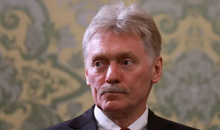

Albanian man dies in hospital after accident in Italy
2025-06-19 13:02:45


Berisha to gather political leaders tomorrow
2025-06-19 12:32:23

Iran confirms meeting with representatives of Britain, Germany and France
2025-06-19 12:11:33


The constitution of the Kosovo Assembly fails for the 34th time
2025-06-19 11:30:28


Albania's nuclear bomb!
2025-06-19 10:52:02

Prej 4 ditësh e zhdukur, humb gjurmët adoleshentja shqiptare në Greqi
2025-06-19 10:33:11
Choosing a child's name, expert reveals three key factors
2025-06-19 10:29:17


Another request for release from house arrest
2025-06-19 09:49:14
Who is the 18-year-old who stole the crown of "Miss Albania 2025"?
2025-06-19 09:41:37

Arrestohet punonjësi i shërbimeve funerale, vidhte në varrezat e Korçës
2025-06-19 09:13:03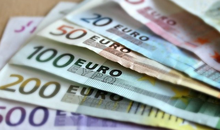
Foreign exchange, June 19, 2025
2025-06-19 09:00:33
Montenegrin arrested in Spain for involvement in a structured criminal group
2025-06-19 08:55:04
BBC: Trump has approved the plan to attack Iran
2025-06-19 08:45:01
Draft reports from Brussels expose 'government facade' towards integration
2025-06-19 08:31:21
Horoscope, what do the stars have in store for you today?
2025-06-19 08:17:33

Morning Post/ In 2 lines: What mattered yesterday in Albania
2025-06-19 07:49:56

Zhulali: EU does not tolerate basic standards, membership is a political process
2025-06-18 22:40:09
Recount process/Këlliçi: DP seeks 14th mandate in Tirana
2025-06-18 22:11:20
Hell in the Gjadri camp, 45 attempted injuries and violent protests
2025-06-18 21:49:49


Israel strikes National Police headquarters in Iran, several injured reported
2025-06-18 21:29:11




Why World War III is 'speaking', and the Albanian PM Rama is silent
2025-06-18 20:08:03
Avoid drying towels in the sun, here's how to keep them soft
2025-06-18 20:07:53

Cannabis legalization in Albania, new law, old risks
2025-06-18 19:39:54

Pope Leo XIV calls for peace: Advanced weapons are temptations we must reject
2025-06-18 19:22:29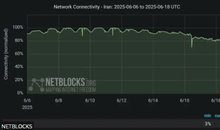
Iran faces near-total internet blackout
2025-06-18 19:07:09




INSTAT: Heart diseases, the leading cause of death in Albania during 2024
2025-06-18 18:05:33

